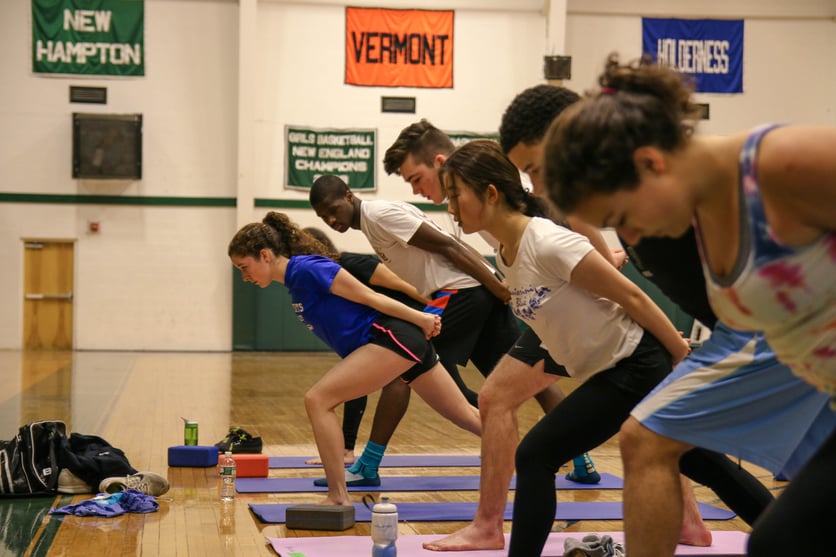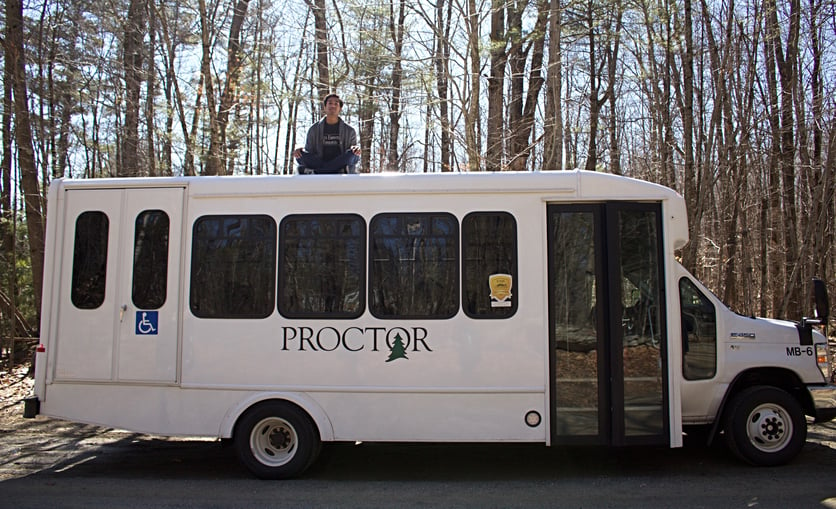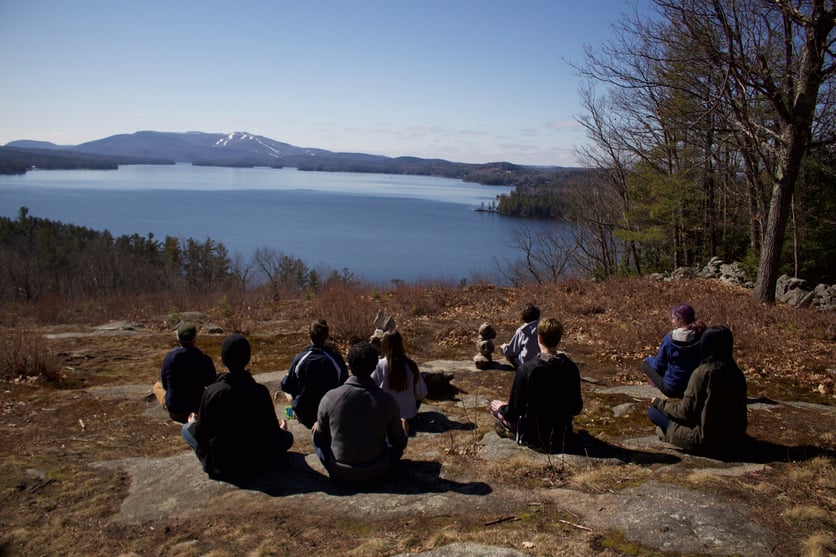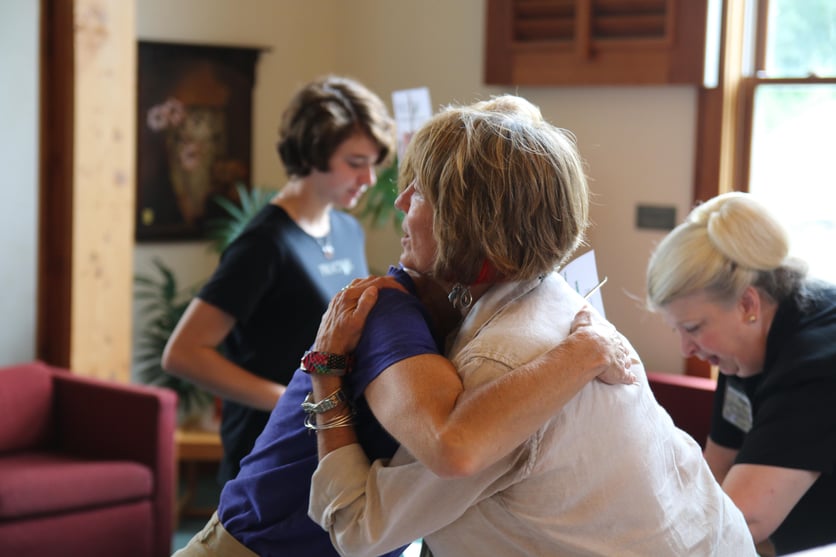Why offer students a time in their days to sit quietly, focus their thoughts, quiet their bodies, set their intentions, and just have a time of reflection, relaxation, and rejuvenation? In a world such as ours at Proctor, which might be seen as a magnificent bubble away from the greater culture around us, our students are challenged to do their very best. And this can become stressful.
They work hard in and out of the classroom, they push themselves on and off the athletic field, they are driven to be notable student artists, athletes, learners, inventors, entrepreneurs, leaders, friends, family members, college applicants, writers, captains, dorm sons and daughters, actors, musicians, and citizens of the world. They do all of this in their own individual ways with their own individual sets of expectations, challenges, fears, hopes, and dreams. And they do all of this while being connected much of their waking hours to the giantly instant digital world that surrounds us all.

This world in which we live requires us to provide support and guidance to our students as they attempt to navigate it. Our dorm parents, advisors, dining hall staff, athletic trainers, coaches, teachers, Learning Specialists, Health Center staff, and entire faculty work together to create a community in which our students are empowered to excel. Despite all this support, stressors and busyness remain. This is why Proctor developed a Mindfulness and Meditation curriculum over 15 years ago, and continues to offer these courses to students throughout the academic day, and are supplemented by Project Period offerings, evening yoga sessions, and Senior Projects to to encourage students to take care of themselves physically and mentally.

The practice of meditation has been in the world for thousands of years and can be found across cultures, continents, various faith practices, ages, occupations, and peoples. Studies have shown mindfulness and meditation improves focus, concentration, precision and enhances the quality of communication within relationships. The benefits don't stop there, however, as the practices helps manage stress, deepens insight, and increases resilience to change. Britta Hölzel notes in the aforementioned article, “It is fascinating to see the brain’s plasticity and that, by practicing meditation, we can play an active role in changing the brain and can increase our well-being and quality of life."
Proctor’s approach to mindfulness offers students a respite from the many demands and distractions that may fall upon their lives. The classes offer a time to learn about the practice of meditation and the importance of quieting and focusing the mind. Deep relaxation practice instills in each and every student an opportunity to develop a personal practice for compassionate self care and to love and appreciate their one miraculous body, which is the vessel for their very being. The practice of mindful visualization is a time for the students to set their intentions for the next moment or the next day.

Students learn to be still, to be in the moment, to be purposeful in their lives, to reflect on what brings them joy, to be thankful for what they appreciate in life, and to be kind to themselves and others during these amazing adolescent years of high school. We offer our students time to develop practical habits of life-long learners who are living in an increasingly accelerated world of discovery, innovation, and, at times, uncertainty.

Our students are the leaders of the future. Meditation and mindfulness practice trains the mind to let go of distractions and to focus intensely, to manage stress, to find purpose, to regulate emotions, to summon up energy, to develop compassion, and most importantly to by pass the default setting in the brain in moments of stress to be able to keep calm and carry on.
We are so blessed. Namaste, blessings, be well, Terry








